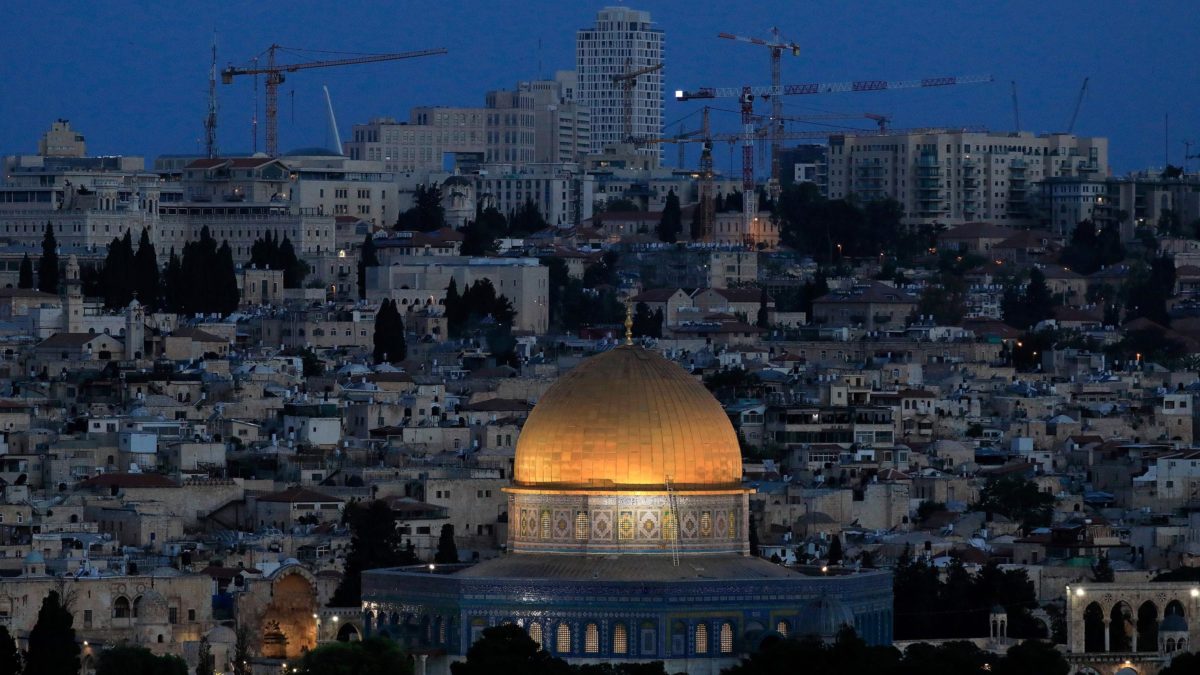One of the holiest sites in Jerusalem reopened Sunday morning for the first time in more than two months, in a further sign of the easing of coronavirus restrictions by the Israeli government.
The site, known to Muslims as the Noble Sanctuary and to Jews as the Temple Mount, is often a flashpoint in Jerusalem’s Old City, but the day passed with only relatively minor incidents under a heavy security presence.
Entering the compound, Muslim worshippers, many wearing the ubiquitous blue facemasks for protection, chanted, “God is the greatest. We sacrifice our blood and soul for you, al-Aqsa,” referring to the compound’s mosque.
A group of religious Jews later arrived at the site during morning visitation hours, escorted by Israeli security forces. The compound is the holiest site in the world for Jews and the third holiest site for Muslims.
Worshippers were allowed to enter the mosque building, as well as the Dome of the Rock shrine, but they were required to have their own prayer rug and mask. Approximately 4,000 people arrived for dawn prayers, the director of the mosque told CNN, a tiny fraction of the hundreds of thousands the compound can host on a busy day.
Some background: The compound is one of the last holy sites in and around Jerusalem to reopen. The Church of the Holy Sepulchre, also in Jerusalem’s Old City, reopened its doors last week, as did the Church of the Nativity in nearby Bethlehem. The Western Wall reopened earlier in May.
Israel and the Palestinian Authority have both begun to ease restrictions imposed as a result of coronavirus. The decision to impose tough restrictions early in the pandemic’s spread is seen as a key factor in why cases of coronavirus have stayed relatively low in both Israel and the Palestinian territories.
But Israeli leaders have begun warning of a sudden rise in the number of new infections in the last few days, raising the possibility that restrictions could be re-imposed if the numbers continue to rise.


